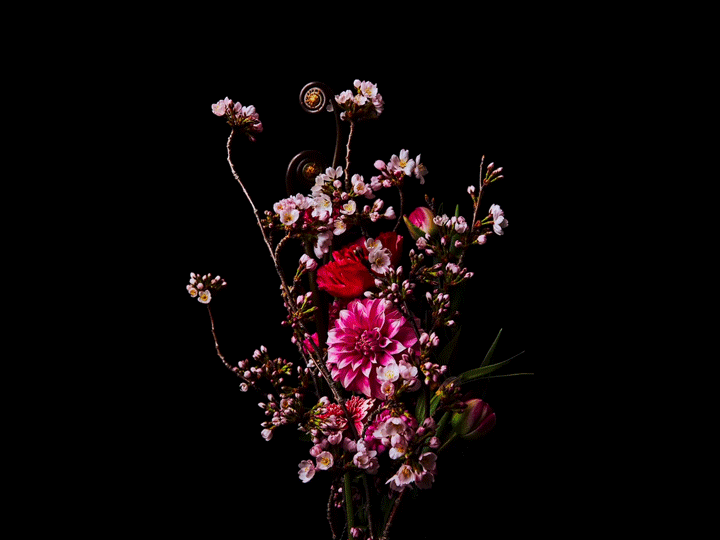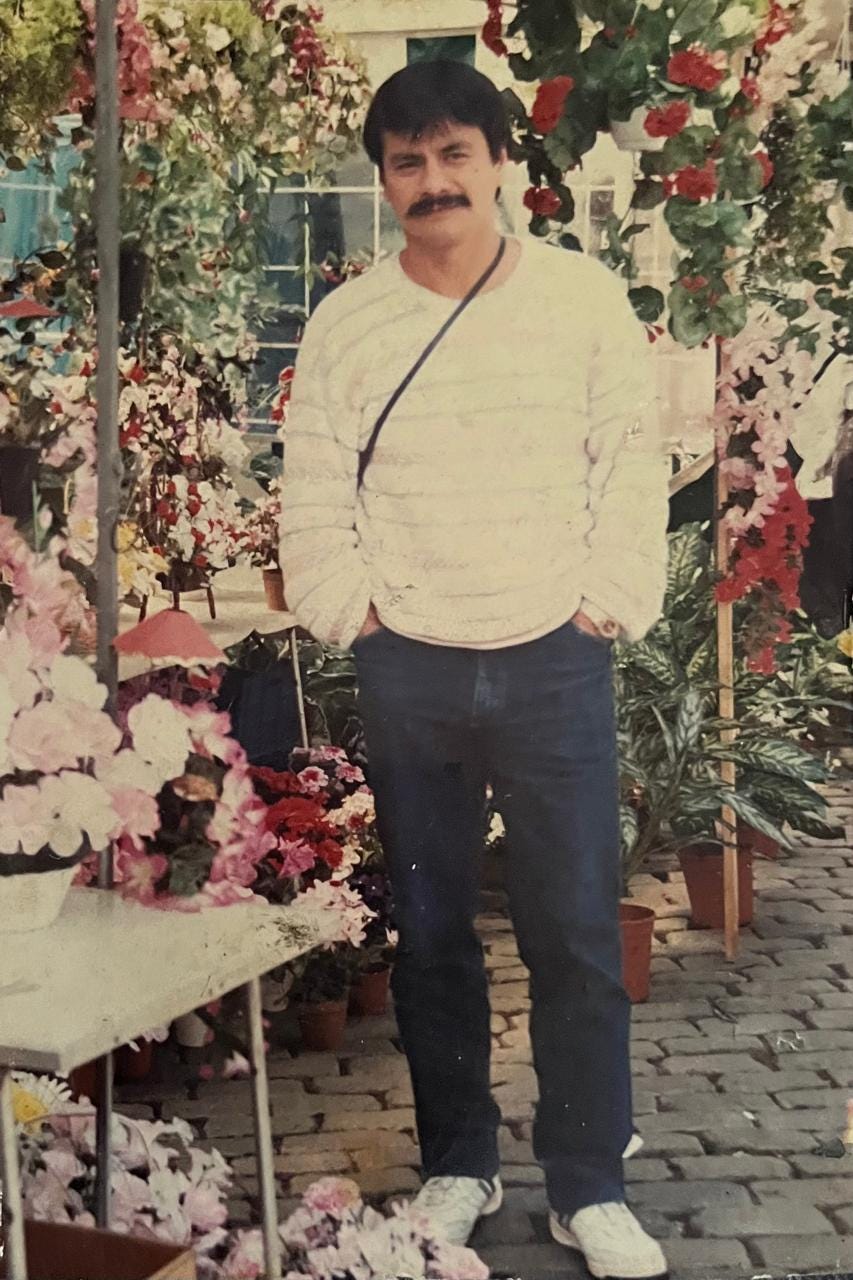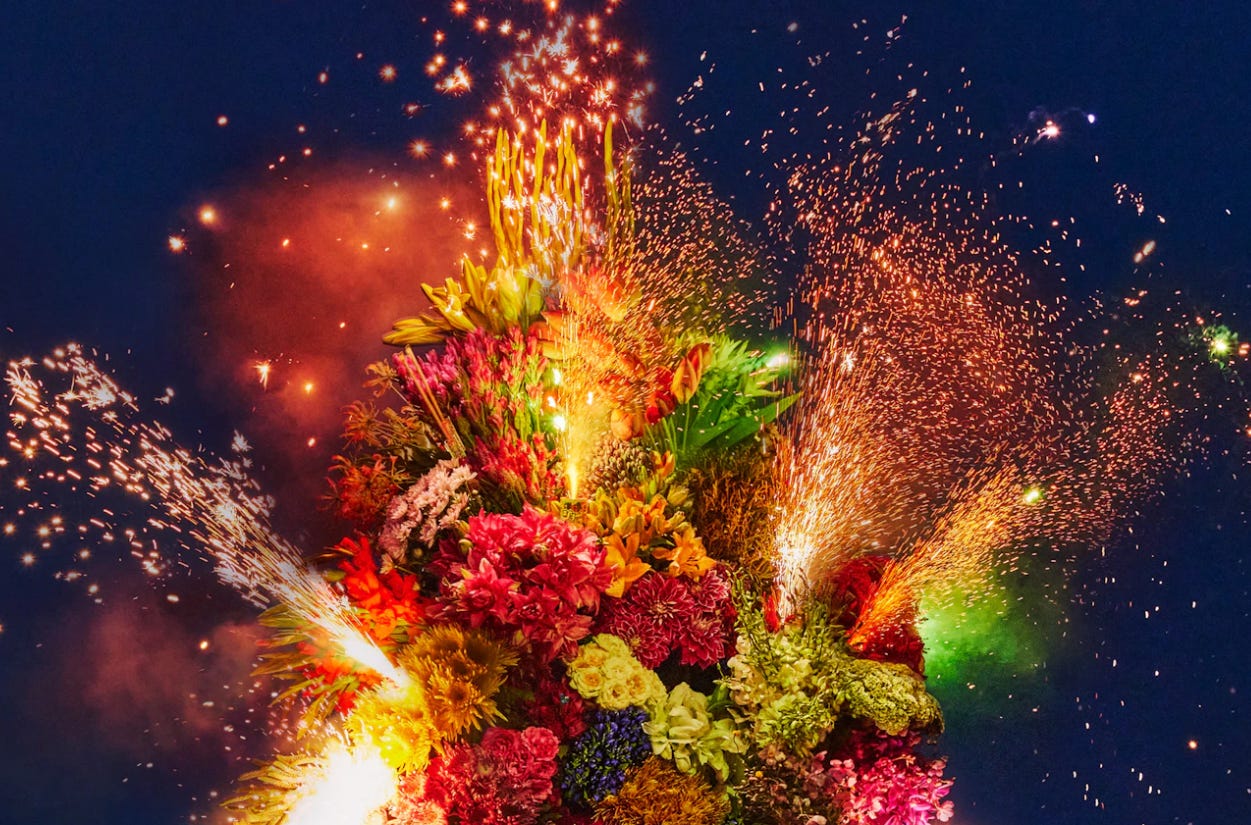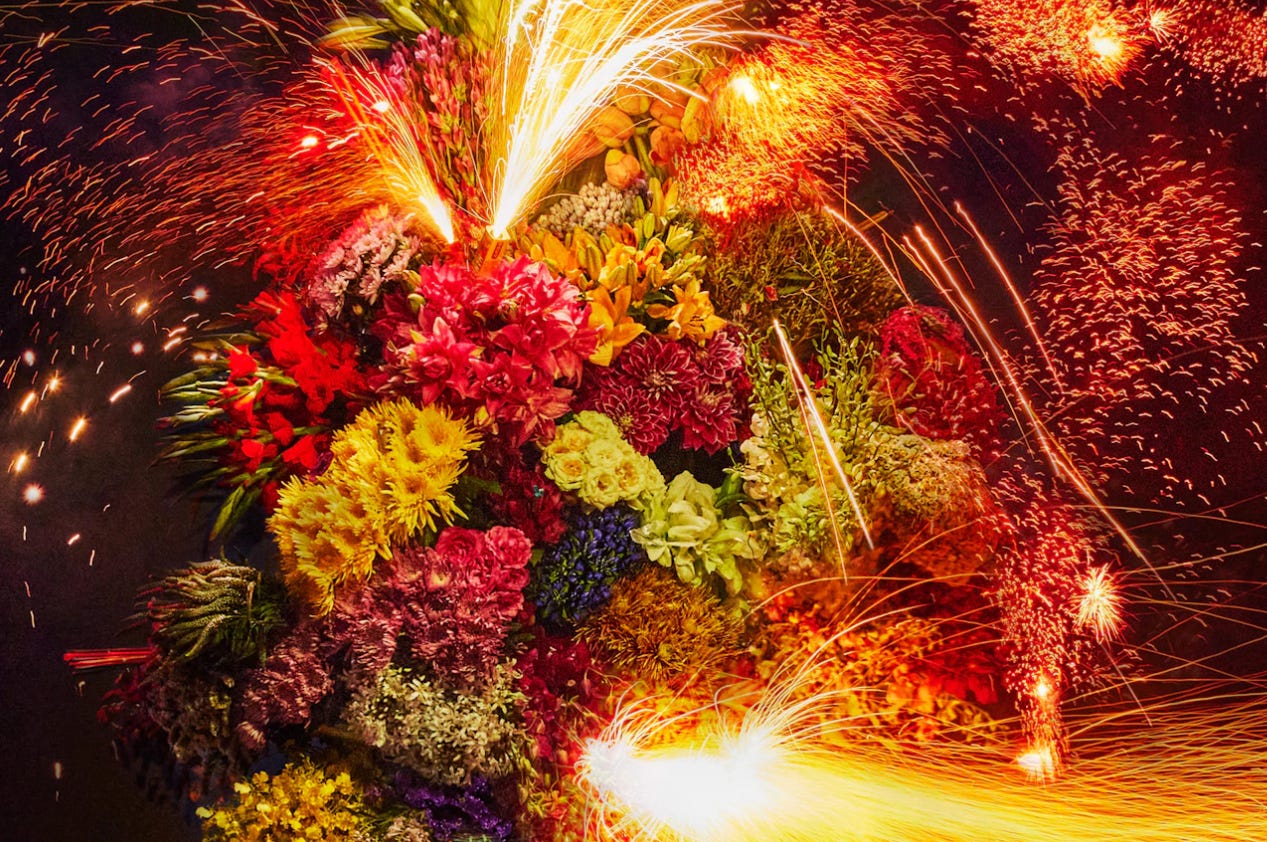
‘It is spring in New York and right before
every spring I believe winter will never end
that I will become one with the specific warmth and color of my home.
I create my cocoon in my bedroom of plants and rest
I sleep
dream
heal
weep
despite all understanding the flowers burst through
I tell them
I’m not ready this spring, I need a longer rest
that I’ll wear black all spring
all summer,
I don’t care, I’ll keep hibernating
I’ll keep grieving
it’s okay they say back
rest your head near us, you can keep grieving.
We will keep blooming and dying
and blooming and dying.
We will turn your grief gorgeous.
- Resham Mantri in You are Capable of Dying and Helping Your Loved Ones Die: A Death Worker’s Manifesto
Today is my birthday. I was born on the spring equinox, from a country known as el pais de la eterna primavera, the land of eternal spring. I am a spring baby through and through.
For the past 6 years I’ve lived on a land where I can witness all 4 seasons. Winters on the east coast have made me love spring even more fervently. I’d impatiently await the sight of the first green buds on trees, the promise of pink cherry blossoms, and the return of the sun’s warmth on my skin.
Last year was the first time I felt at odds with spring, when I wanted winter to expand and envelop me. Spring felt like an assault & offense to my grief.
I was still grieving for my paternal family in Gaza. I felt conflicted about celebrating my birthday. There was so much guilt & shame. Joy, recreation, and little luxuries felt like taboos, like celebrating would be a mockery of their suffering. After much internal debate, I concluded that growing old is a privilege, one that merits commemoration. Seeing Palestinians celebrate their birthdays amidst rubble reminded me that it was okay to want to affirm life and to savor life’s simple pleasures, even amidst hardship.
I was turning 30, a lavish milestone for many, it was supposed to be culmination. In the morning I was going to present a digital art collage for my final class at SFPC. In the evening I was going to have dinner and play games at an arcade with friends.
I didn’t end up celebrating at all. Instead I woke up to the news that another family member had passed. This time not in Palestine, but an unexpected death within my maternal family in Guatemala.
There’s a lot I could say about my uncle Nicolás. That he was born on the winter solstice. That he died on viernes de dolores, friday of sorrows. That he was buried during a lunar eclipse. That he was a doctor without borders. That he was an epidemiologist. That he was an intellectual. That he was a revolutionary. That he was a student activist during the civil war, armed conflict, genocide. That he had lived in Belgium, Italy, Mozambique, Guyana, Panama… That he was my mother’s father figure, amongst generations of missing/absent men.
My grandmother Josefina’s birthday is the day before mine, yesterday, on March 19th. She just turned 87 but she associates this time, this holy week/month, with the death of her only son. Despite having recovered from brain surgery and struggling with progressive blindness, she is devoting herself to a 9 day novena in his honor.
So now this time holds both the anniversaries of our lives and of his death.

‘In ancestral times, the equinox was known to the Maya as Sukul Upam Ri Q'ij and it was a time of celebration. The Equinox is significant because it represents a period of equilibrium in which night and day hold the same time in our daily cycles.
No one in this world should live only in light or darkness, since both energies promote healing and growth in their own unique ways. Light provides energy and vigor, while darkness promotes contemplation and rest.
The equinox is a time when we are reminded that the world sustains itself through balance, as the light and dark of our days become equal. It serves as a reminder that one is not better than the other.
Just as we are a reflection of the cosmos, now is the time to acknowledge the light and darkness inside ourselves. Just as the Earth seeks balance between these two forces, we too can learn to find harmony within our lives.
Flowers are not supposed to last, their job is to help us stay present. Flowers like rose, peony, poppy, and anemone helped me survive my grief last year. Today as I take another step into my 30s, I continue to study them, to look to them as wise teachers who know how to bloom after tragedy:
‘In 2011, a group of Harvard physicists leaned in to study the mechanisms of the flower’s bloom. We know that flowers bloom to attract pollinators and thus to survive. But how do they generate enough force to curl open in summertime? What processes trigger this seminal publication of telluric and arboreal passion? In the study of the lily, it was noted that blooming works “because plants build up “instabilities”. Instabilities happen when certain “cells (in stems, roots and lily blossoms) elongate more than others”, constituting excessive growth that strains the rest of the plant. This excessive growth or mismatch at the edges coaxes the petals to bend over backwards, curling them up “like a smile”…
In a sense that is more than metaphorical, grief is the coming apart of things. It is the material unraveling of edges, the peeling back of awkward tips... I cannot help but imagine that the plant’s blossom is a grieving. In noticing this, I realize that grief is not just a response to loss, it is a response to excess. It is how things bleed into each other. It is the dynamism of material flows melting into each other, shape-shifting at the instance of a touch.’
During my unorthodox Ramadan, my greatest spiritual lessons have come from sacred plants rather than holy texts. Flowers have allowed me to express heartbreak, romance, and tender care. I found this sentiment echoed in the short documentary about florist Azuma Makoto:
‘I'm able to express myself, my ideas with flowers…
Flowers are about something more than just beauty…
Flowers can convey the arranger's joy, emotions, and technique…
Flowers are living things. You always need to be aware of this…
They have their own beauty of dying out…
My artwork is a prayer, a way to remember…
She said it was God's work…
Flowers are God's work so you must pick and show them…
Destroying myself to capture new beauty...’
‘One time I read an old story and started to cry. There was once a very bad disaster in Kyoto and the monks there dedicated flowers to the victims and prayed every morning. When they would finish praying, they would go out to feed the victims and take care of their wounds.
The passage said this was the true purpose of someone who arranges flowers. When I read it, it made me cry so much and I felt "These guys are punks". It's not just about arranging flowers. It's the whole thing - saying the prayers and entrusting them to the flowers, arranging flowers even in the face of disaster...that spirit is my goal. I really feel it's a punk spirit. It shook my heart.’
I’ve shared before that I want to write about flowers, and the moon, and handcraft. Not as distraction or escapism from the ugliness of the world, but as a lens to confront and engage with the things that pain us. I want to write about them because Palestinians deserve beauty too.
If you’d like to share a small act of beauty with me for my birthday, please consider spreading the love to my family’s fundraiser. I hate to sound like a broken record, but it’s truly what would give me peace of mind. Every donation, share, or word of support helps me plant seeds for their future.
As an offering, I’ll leave you with this playlist I made dedicated to springtime: naturescapes, odes to blossoming love, and good days. Happy Equinox.






Thank you Leila <3
so lovely, leila—your words and ideas bloom like flowers in my mind when I read your writing, which is such a gift. holding you close in my heart ♥️